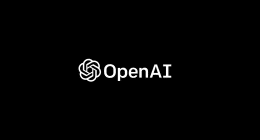The Ministry of Electronics and Information Technology (MeitY) has advised stakeholders like RBI, National Payments Corporation of India, NIC and UIDAI (Aadhaar) to protect their systems from being infected by the fast-spreading ‘Wanna Cry’ ransomware to ensure that the digital payments system of the country remains safe.
This move from MeitY comes after over 100 countries’ healthcare and telecommunication sectors faced the repercussions of the ‘Wanna Cry’ ransomware recently. The Ministry has asked cyber security unit Computer Emergency Response Team (CERT)-In to gather info more on the ransomware.
The ransomware wreaked havoc on the world this weekend when it hit computer systems in several countries including Russia and UK, making it one of the most widespread cyber attacks to have ever hit the world. It operated by locking access to files on computers that were running older and out-of-date versions of Microsoft Windows such as XP.
The cyber criminals behind these attacks have demanded a fee of about $300 in encrypted currencies like Bitcoin to unlock the device. Microsoft has now released a security patch in light of this situation and is urging its customers around the world to download this solution. In addition, there are now a list of guidelines on Microsoft Community to help customers protect their systems from the ransomware.
Although there have been no formal reports regarding the ransomware attack yet, MeitY has claimed that a few systems of the Police Department of Andhra Pradesh have been affected and the state government has been instructed to follow the directions given by CERT-In.
The Ministry in a statement stated,
MeitY is keeping a close watch on the developments on the ransomware and is working in close coordination with all relevant agencies.
It has taken several steps to ensure that citizens of the country are warned against the ransomware and has reached out to several departments such as the Department of Telecom (DoT) to alert Internet service providers (ISPs) to secure their networks as well as the Data Security Council of India (DSCI) and CDAC to do the same.
The Ministry has also been in touch with Microsoft India, urging it to inform all its partners and customers to use the relevant patches of security solution. According to CERT-In, the ransomware spreads by infecting other computers that work on the same network and also through malware in e-mail attachments. To stop its spread therefore, security firms have suggested that users disconnect the infected device from the local network.
The damage of the ransomware was seen in countries like Spain, where the malware affected telecommunications company Telefonica as well as several others, and in UK where hospitals and clinics turned away patients because they did not have access to computers.
According to several reports, over two lakh computers have been infected worldwide. Experts believe the situation will be worse in the country as several computer systems still work on earlier software and have not been updated yet.
India is being considered among the top countries that have been negatively affected by the Wanna Cry ransomware, accounting for almost 5% of the attacks. This is mainly because most systems in the country still run on Microsoft XP, one of the operating systems that is most at risk.
Multiple comments by experts reveal more about the ransomware attack and cyber security as a whole.
According to Saket Modi, the CEO and co-founder of Lucideus, ransomware is a trend that seems to be gaining popularity fast, with security companies now receiving 4-5 requests a week from companies around the country to protect them.
The ransomware currently appears to be slowing down, after ‘Malware Tech’ a Britain-based security researcher found a “kill switch” for it. However, experts have warned people that the ransomware could find a way around this fix.
The Tech Portal is published by Blue Box Media Private Limited. Our investors have no influence over our reporting. Read our full Ownership and Funding Disclosure →






